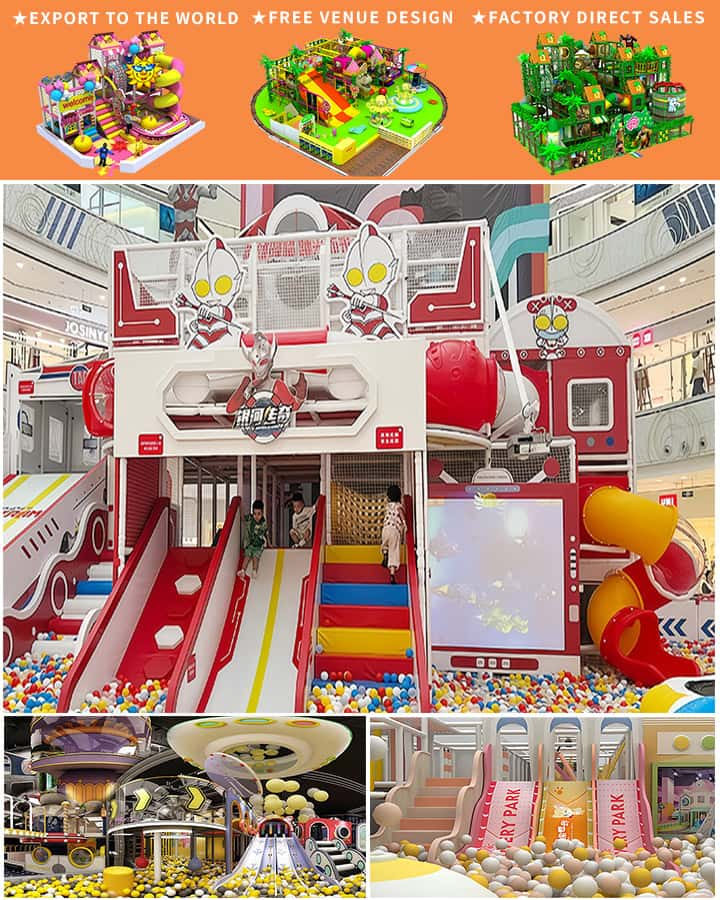In recent years, soft play equipment has become an essential feature in many indoor playgrounds and recreational facilities. Designed to provide a safe and engaging environment for children, these structures offer numerous benefits that contribute to both physical and cognitive development. Soft play equipment is not just about fun; it plays a crucial role in fostering various skills necessary for a child’s growth and well-being.
Safety First: The Core Advantage
One of the most significant advantages of soft play equipment is its focus on safety. Made from materials like foam, sponge, and other soft substances, these pieces minimize the risk of injury during play. Unlike traditional playground equipment, which often involves hard surfaces and sharp edges, soft play areas are designed to be impact-absorbent. This reduces the likelihood of cuts, bruises, and broken bones, giving parents peace of mind while their children engage in physical activities.
Encouraging Physical Activity
Physical development is another critical area where soft play equipment proves invaluable. Climbing frames, slides, and tunnels challenge children to use their muscles and improve their motor skills. Activities such as balancing on beams or navigating through obstacle courses help enhance coordination and strength. These physical challenges are essential for developing gross motor skills, which include running, jumping, and climbing—abilities that form the foundation for more complex movements later in life.

Social Skills and Emotional Growth
Soft play areas are also social hubs where children can interact with their peers, learn to share, and develop essential social skills. Group play encourages teamwork, problem-solving, and communication, all of which are vital for emotional growth. In these environments, children practice empathy by understanding others’ emotions and learning to cooperate towards a common goal. Such experiences are invaluable for nurturing well-adjusted individuals who can navigate social situations effectively.
Stimulating Cognitive Development
Beyond physical and social benefits, soft play equipment also stimulates cognitive development. Many setups incorporate elements of exploration and discovery, prompting children to think creatively and solve problems. For example, navigating a multi-level play structure requires planning and spatial awareness. Interactive elements like puzzles and sensory toys further engage young minds, aiding in the development of logical reasoning and critical thinking skills.
Educational Opportunities
Educators and parents alike can leverage soft play equipment as a tool for informal education. Incorporating educational themes into play structures can make learning enjoyable and memorable. Alphabet mats, number walls, or even themed play zones based on scientific concepts can turn playtime into a rich learning experience. These subtle yet effective teaching strategies can enhance literacy, numeracy, and general knowledge without the pressure often associated with formal education.
Accessibility and Inclusivity
Another commendable aspect of modern soft play equipment is its inclusivity. Many designs take into account children with varying abilities, ensuring that everyone can participate and enjoy the benefits of play. Features like wheelchair-accessible ramps and specially designed stations allow children with disabilities to join in the fun. This inclusivity promotes a sense of belonging and ensures that all children, regardless of their physical capabilities, have equal opportunities for growth and development.
Conclusion
Soft play equipment is far more than just a source of entertainment; it is a multifaceted tool that supports the holistic development of children. By prioritizing safety, encouraging physical activity, fostering social skills, stimulating cognitive growth, and offering educational opportunities, these structures create an environment where young minds and bodies can thrive. As our understanding of child development continues to evolve, the role of soft play equipment will undoubtedly remain integral to nurturing well-rounded, capable, and happy individuals.




